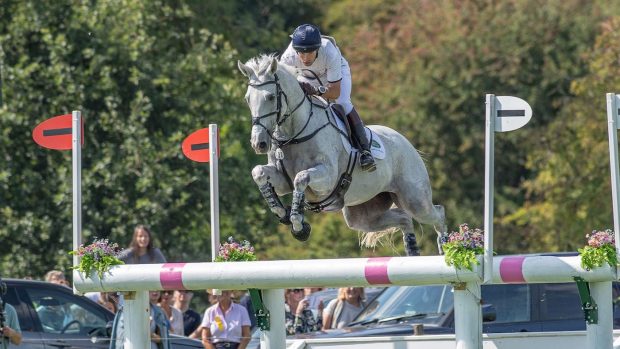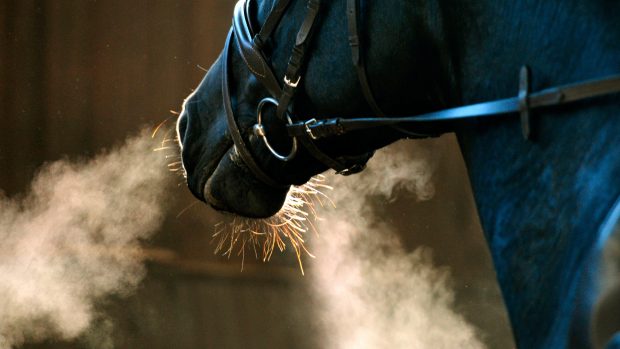A range of different terms including heaves, COPD and RAO, have been used around the world in recent years to describe the signs of a cough and mucus in the horse.
However, the increased use of comparative medicine, between equines and humans for example, has made it important that both vets and medics use the same definitions when comparing research results.
According to Professor Edward Robinson from Michigan State University, who has undertaken extensive research into equine airway disease and presented his finding at the BEVA conference, COPD is no longer being used to describe airway disease in equines.
COPD is a human disease, predominantly suffered by old people who have smoked throughout their lives, who have a reduced response to bronchodilators and corticosteroids. Horses that suffer from a respiratory syndrome, are all ages, and have a good response to both bronchodilators and corticosteroids, therefore we should think of their syndrome as being environmentally induced asthma.
All horses suffering from an airway inflammation show similar signs:
- Airway obstruction from mucus or broncospasm due to a thickening of the airway wall
- cough
- hyper responsiveness of the airways
Recurrent airway obstruction (RAO) is the correct name for the most severe form of airway inflammation. Horses showing less severe signs are described as having inflammatory airway disease or IAD.
The degree to which your horse might suffer from RAO or IAD will depend on a number of factors but the one that you should be able to control the most is his environment.
The longer that he is exposed to dust or spores from hay the greater his response is likely to be.
Professor Bruce McGorum from Edinburgh Vet School is adamant that 95% of hay made in Britain is not of a sufficient hygienic quality to be fed to horses, therefore all hay for all horses should be fed soaked.
Horse owners should also consider the environment around their stables and in the school or arena in which you exercise their horses. A horse suffering from RAO or IAD will be hyper-responsive to all dusts in the air.
Top tips to reduce dust
- Thoroughly shake the hay before soaking for half an hour and feed while it is still wet
- If using straw bedding, then shake thoroughly before putting down, preferably in the straw store rather in the stable
- Dampen all surfaces before sweeping
- Remove the horse from the stable while mucking out
- Turn out every day
- Remember that soaking hay does remove nutrients especially the electrolyte minerals, so make sure that you feed a well-balanced ration
- Try and feed hay on the floor, so that the horse is not having to put its nose into a haynet, which is a concentrated dust carrier
- Consider dust-free alternatives to hay such as haylage or straw/alfalfa chops
- Alfalfa Chaff and Fibergy will keep a horse occupied longer than hay fed on the floor
Many feed companies provide hay analysis for horse owners who are concerned about the quality of their hay. Dodson & Horrell’s standard analysis focuses on protein, energy, sugars and fibre levels and costs £5, while a more in-depth analysis that looks at moulds and respirable particles is available for £40.
|
ANALYSIS OFFER FOR HHO READERS!
Dodson & Horrell is offering five readers a free in-depth hay analysis, worth £40. Simply e-mail your name and address to Jenny at the Dodson & Horrell Forage Lab on jlax@dodsonandhorrell.com before the 26 September. The five lucky winners will be chosen and informed by e-mail after the closing date. All other entrants will be sent a forage analysis request form, which can be sent in with a hay sample and payment. Full details about Dodson & Horrell’s forage analysis are available on: www.dodsonandhorrell.com |




